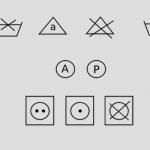Contribute to GAP’s new journal on complex problem solving

I was honoured to launch the Journal of Behavioural Economics and Social Systems (BESS) on behalf of Global Access Partners and the Editorial Board at GAP’s recent Summit at NSW Parliament House.
At BESS, we believe in problem-solving. When business transcends complicated and becomes truly complex, a new approach is needed. Wicked problems involve social justice, social change and social economy issues characterised by stakeholder multiplicity and policy confusion.
Addressing this difficulty requires the ability to negotiate politically, under conditions of uncertainty, and to work effectively in networks and at the boundaries between academia, industry, and policy.
So we try to provide our readers with ideas that help them work in complex social systems acting as agents of economic, social, and policy change, solving problems that are too difficult for the rational scientific approach. To do that, we invite leading experts in academia, business and government to share their knowledge with us.
BESS focuses on the behaviour and interaction of economic agents in solving wickedly complex problems. The Journal aims to transform economic thinking by challenging the prevailing concept of human rationality.
We welcome submissions that deal with a transdisciplinary social sciences approach or use experimental methods of inquiry. Thus, contributions in behavioural economics, experimental economics, economic psychology, social cognition, social networks, and judgment and decision making are especially welcome.
We publish manuscripts of various lengths and styles that might help us share leading-edge thinking. There are five qualities we look for when evaluating what to publish:
1. Expertise: You don’t have to be an academic. We welcome submissions from government, industry, and consulting.
2. Evidence: Our readers will want to know why they should trust your ideas. Showing supporting data or describing relevant examples is helpful. Case studies are also useful.
3. Originality: Aim to think outside the box. Readers turn to BESS is to discover leading-edge ideas. Try to be different.
4. Usefulness: Be practical. BESS readers seek ideas that will help them change the way they and their organisations actually do things. We want to make a difference by tackling problems that can change society for the better. Showing the reader how to apply your ideas in a real situation will make a difference.
5. Writing that’s persuasive and accessible: BESS readers are practical, busy people. Try to capture their attention at the start by telling readers why they need to know this. Hold their attention by making your ideas easy to understand. While your ideas might be complex, your writing should be as simple as possible.
In summary, we will consider publishing anything that is interesting about group problem solving, particularly ideas that are novel, practical, and well-articulated. We welcome research articles, notes, essays, and even book reviews.
The second edition will be released in April 2020. Please send your papers to the editor at editor@globalaccesspartners.org.
Thank you for your support.
Dr Peter Massingham is an academic and consultant on knowledge management and the author of over 50 peer-reviewed articles. He was the Director of the Centre for Knowledge Management from 2002 to 2014.








